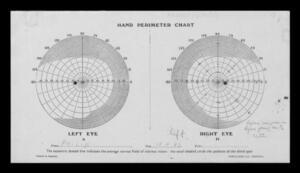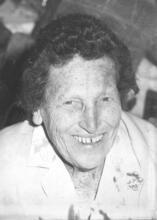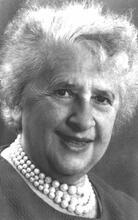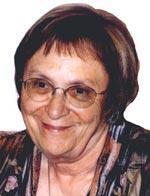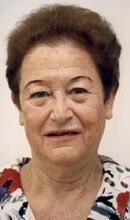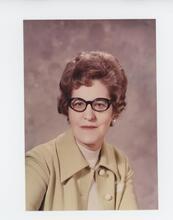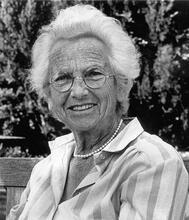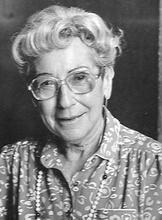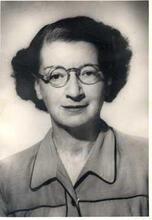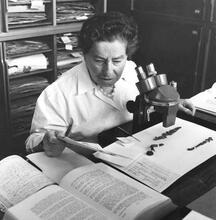Ursula Philip
Ursula Philip was born and raised in Germany, where she studied mathematics, biology, and zoology and worked with some of the most prominent scientists in the country. She was about to receive her doctoral degree when she was forced to flee the country when the Nazis took power in 1933. She took refuge in Great Britain, where she found a network of scientists and continued her career as a geneticist. She was admitted as a member of the British Eugenics Society in 1957.
Article
Geneticist Ursula (Anna-Ursula) Philip began her professional career in Germany and, after fleeing into exile, became a prominent researcher in Great Britain.
Ursula Philip was born on September 6, 1908, in Berlin, to a middle-class Jewish family. The excellent education she received at a Gymnasium enabled her to study at university immediately after completing the Abitur examination. She studied mathematics, biology, and zoology at the Universities in Berlin and Freiburg in Breisgau. At the latter she also qualified to become a teacher in sports and gymnastics. From 1931 to 1933 she was a graduate student at the Kaiser Wilhelm Institute (KWI) for Biology in Berlin-Dahlem in the department of the famous Richard Goldschmidt (1878–1958), where she also served as librarian. Under normal conditions her studies at the University of Berlin and her position at the KWI would have qualified her for a scientific career in Germany, but the accession to power of the Nazis in 1933 entirely changed the situation.
On July 20, 1933, Ursula Philips was due to complete the requirements for receiving her doctoral degree. The procedure for receiving a doctoral degree was threefold: submitting a thesis with the recommendation of two professors, an oral examination of one hour and the publication of the thesis in a scientific journal. Philip had fulfilled the two procedures when she was dismissed from the Institute and had to flee to Great Britain. Her thesis supervisor in genetics on the subject of Drosophila melanogaster was Curt Stern (1907–1981), who also had to flee from Germany and who later became an important geneticist in the USA. Upon publication of her thesis in 1934 she was granted a doctoral certificate, which her mother obtained in Berlin and sent to her in London.
In Britain, thanks to the support of the newly established Academic Assistance Council (later the Society for the Protection of Science and Learning), she received grants, initially at University College, London, in a new research group in the Department of Zoology, headed by J. B. S. Haldane (1892–1964). With the support of Haldane, who held her in high esteem as a geneticist, she was able to work as an assistant in the department from 1934 until 1947. In 1946 Ursula Philip was naturalized as a British citizen.
In 1947 Ursula Philip was appointed Lecturer in Zoology at King’s College, Newcastle upon Tyne, later (1963) the University of Newcastle upon Tyne. In 1964 she was promoted to Senior Lecturer. She became a Member of the British Eugenics Society in 1957 and a Fellow in 1977.
Philip worked with prominent geneticists when Drosophila genetics was established, achieving fruitful research results.
List of Displaced German Scholars. London: 1936;
British Eugenics Society, Members List. Archive Humboldt Universität zu Berlin University
(Archiv HUB), Phil. Fak. Nr.767, 96–114.
Oxford, Archive SPSL, personal file 203/1, pp. 1–38 and 438/3, pp. 371–384.
Kalmus, Hans. Odyssey of a Scientist: An Autobiography. London: Weidenfeld and Nicolson, 1991, 59.
Vogt, Annette. Wissenschaftlerinnen in Kaiser-Wilhelm-Instituten: A-Z (Women Scientists in Kaiser Wilhelm Institutes, from A to Z). Berlin: Archiv zur Geschichte der Max-Planck-Gesellschaft, 1999, 110–111.

